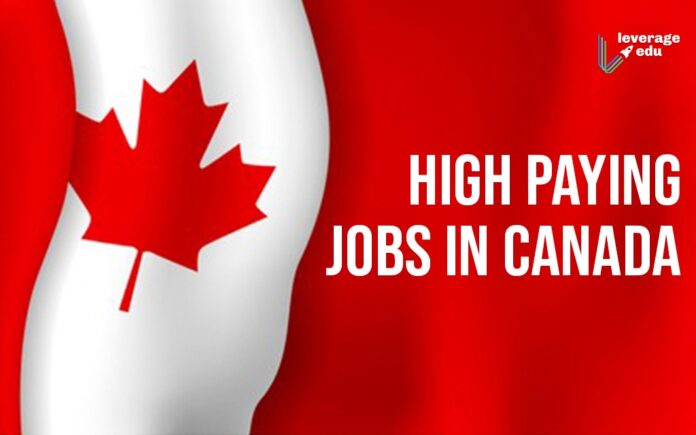Canada seeks to fill job vacancies with immigrants from across the world
By Jeph Ajobaju, Chief Copy Editor
There are currently more than one million job vacancies in Canada, according to the latest report by Statistics Canada which shows that labour shortage is at a historic high across provinces.
Canada granted permanent residence to 35,260 immigrants from acros s the world in January alone in its bid to attract 400,000 immigrants for the second straight year under its Immigrant Levels Plan 2022-2024.
Nigerians accounted for more than 15,000 immigrants who gained permanent residence in Canada in 2021, and the friendly North American country expects more Nigerians to come in 2022 and take up jobs in a growing post-pandemic economy.
Immigration is more important now than ever for Canada as its economy has recovered from Covid disruptions that ravaged economies across the world in 2020 and 2021.
Canada’s Gross Domestic Product (GDP) now exceeds pre-pandemic levels, and 115 per cent of jobs lost during the pandemic have returned.
Employers are actively looking to fill over a million positions across all sectors; immigration will play a key role in helping to fill these gaps and sustain Canada’s economic growth.
__________________________________________________________________
Related articles:
Canada wants over 15,000 Nigerians for jobs this year
Canada resumes Express Entry immigration process in July
Nigeria’s first female Boeing 787 pilot valued by Qatar Airways
_________________________________________________________________
Below are some ways the Canadian government is recruiting and retaining foreign skilled workers, as reported by canadim.com
Making it easier to stay and work
To make it easier for international students to remain and work in Canada, the government will extend post-graduation work permits (PGWPs).
This will allow recent graduates whose permits have expired or are expiring this year to extend their status for an additional 18 months.
With all-program Express Entry draws being paused since September 2021, many international graduates were concerned their status would expire before becoming eligible to apply for permanent residency.
Extending the status of PGWP holders allows these students to continue gaining Canadian work experience. Graduates can then use this work experience toward a future permanent residence application.
Canada has also extended a public policy allowing visitors to apply for an employer-specific work permit without leaving the country.
This allows individuals seeking employment to stay on valid visitor status in Canada until they receive a closed work permit.
The government initially introduced this policy during the pandemic in 2020 and has extended it until February 2023.
Resuming Express Entry draws
Express Entry is one of the most popular programs to attract skilled immigrants to Canada. The Canadian government will resume the all-program Express Entry draws in July 2022.
Prior to the pandemic, Canada held all-program draws approximately every two weeks. Due to a backlog accumulating during the pandemic, the government paused these draws in September 2021.
As the result of a significantly reduced application inventory, Canada is able to resume all-program Express Entry draws in July. The processing time of these applications will also return to the service-standard of six months.
Canada may also be changing the way it invites candidates from the Express Entry pool in the next all-program draw.
The Canadian government is currently in the process of passing Bill C-19 which would allow the immigration minister more control over who is invited in Express Entry draws.
Instead of issuing invitations solely based on a points system, the minister would select candidates based on their ability to meet the country’s economic goals.
This means that the next all-program Express Entry draw could target a group of occupations, among other factors. it may also result in a lower CRS cut-off than would have otherwise been required in a general draw.
Lowering tuition fee from $20,000 to $3,000 CAD
The Quebec government recently announced that it would be lowering tuition for eligible international students.
In hopes of attracting more international students, Quebec will cut tuition fees for certain international students from about $20,000 to $3,000 CAD per year.
This will make it more accessible for some prospective students to study in Canada and enter the labour market after graduating.
Upon completing studies at a Designated Learning Institute (DLI), international students may apply for a post-graduation work permit which allows them to work anywhere in Canada.
To get a job with the Canadian government, CLICK HERE




